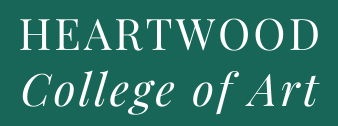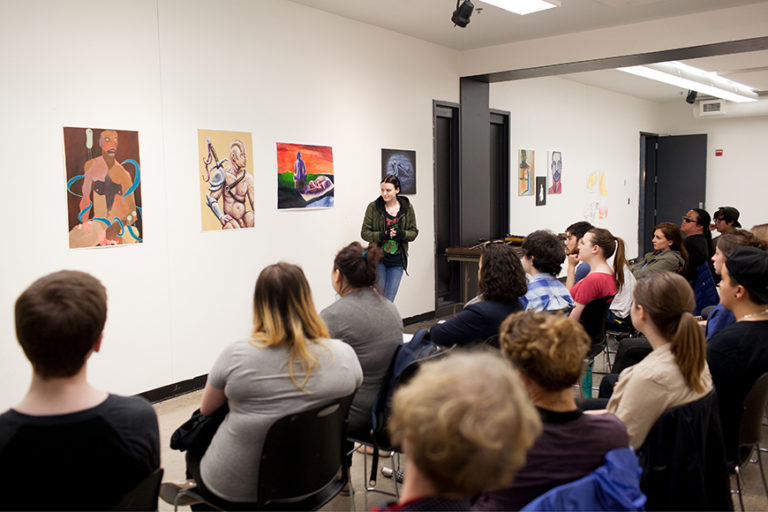The goal of the Masters program is to foster the making of art at the highest level and allows one to integrate the practice of art making into one’s daily life. This program is designed for students who work or have other life commitments and yet wish to create a methodical practice for the making of art. A commitment of twelve hours of studio time per week is essential. The “Weekend Workshop” scheduled every semester includes guest artists and lecturers as well as an opportunity to “hang” with the “Masters”. Students in this program are required to participate in students’ presentations and semester evaluations monitored by mentors and advisors who are drawn from Heartwood’s renowned faculty as well as regional masters.
Why an MFA?
According to a recent article in the New York Times, the MFA is the new MBA! “The MFA teaches you an entirely new way of seeing, allowing you to unbox your mind and perceive what’s really there.” (Daniel Pink) The value of creative thinking and the ability to problem-solve enhances not only art making, but also helps mitigate everyday responsibilities.
Who pursues an MFA?
The fine art process is about exploring ideas, nurturing one’s imagination and making a connection to the world at large. People choose to return to college for a variety of reasons, including credentials, professional development or to define the skills that become the tools one needs for expressive direction. It is for these reasons that an artist takes the journey through an MFA program, within the setting of an “art community.”
What is a Low Rez MFA?
The MFA is the highest degree of study in studio art. Its progression is based on completing the steps set forth by both student and mentors in the proposal and evaluation process. The concept of low residency integrates the practice of art making into ones daily life, dovetails the “working world” most artists are a part of with a guided intensive studio commitment. This is a perfect program for educators and professionals who want to continue working while furthering their education. One is not exclusive of the other. It is a balance that teaches one how to make art while living life, a reflection of personal experience and social comment. The finely honed practice achieved from an MFA program establishes a life long continuum that advocates, “Art” to be made out of anything.
The devil is in the details…
Heartwood’s Low Rez MFA is based on 6 credits per semester. Students travel through the program in a “Pod” of 8 – 12 students in a variety of disciplines. Students have their own mentors and advisors. Each semester is organized around a reviewed proposal which includes a layout of the work to be accomplished, a weekend workshop mid-semester with all members of the pod, and a closing evaluation with mentors and advisors. The weekend workshop will encompass a “pod” exhibition and critique, a full day workshop with guest artists as well as seminars on “The Business of Art.” Also included in the weekend will be a pre-assigned topic for discussion from literature or film. These weekends will foster commitment to the concept of art as a “conversation with the world.”
A qualifying MA can be transferred into the MFA program and it will be possible to accumulate up to 12 outside credits towards the individual course of study.
Where to do an MFA?
“Where” is not so much a place as it is a shared passion between artists. Who you study with will ultimately determine the direction you choose for exploration. A low residency MFA is completed in your own studio with guidance from your advisor and mentors. Your course of study is self determined.
Mentors
Over the years Heartwood College has cultivated a relationship with numerous practicing artists in Maine. Many of them have taught at the College at one time or another and exhibit nationally. They are a gathering of working professionals artists bonded together by a shared truth that passing on what they have learned is a fundamental part of the artistic conversation. These mentors are at the core of the MFA program. Other mentors can be included as part of your review team with prior approval from your advisor.

